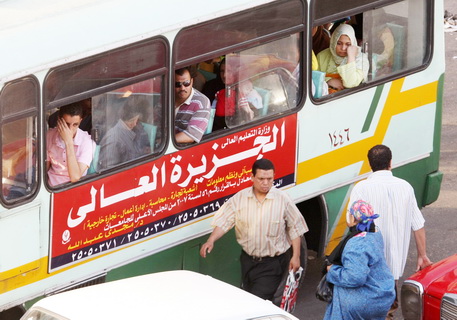Automech Formula in Fifth Settlement: new start for car market
Egyptian market has all ingredients that qualify it to become a major…
AGA to open two vegetable, juice production lines by end of 2019
Nile Agricultural Ind Co (AGA) is aiming to open two new production…
Metro ticket will increase to EGP 6 starting July 2018: Ministry of Transport
Parliament meets Arafat on 26 December, government did not discuss decision with…
‘Go Bus’ contracts with Mercedes to supply 22 buses next year for EGP 125m
“Go Bus” has signed an agreement with Mercedes Benz to buy 22…
APA set to pose international tender to implement dry bulk terminal within one month
Authority begins implementation of second phase to deepen the berths in April
Transportation Ministry begins two road and railway development projects in July
Negotiations with international financial institutions to raise EGP 5bn to develop 1,200…
Transportation Committee calls Al Watania company to provide a clear mechanism for vehicles fees
We received numerous complaints about imposing price based on loads types not…
Cairo Metro addresses cabinet, again, to increase ticket price to EGP 2
Parliament summon heads of Cairo Metro and Egyptian National Railways to review…
Hamburg authority expresses interest in managing Egyptian ports: Ministerial consultant
The consultant said the ministry is still in negotiations with China Harbour…









